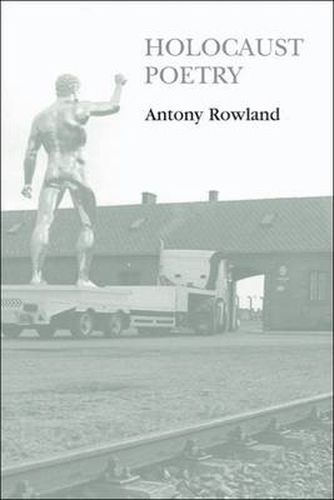Readings Newsletter
Become a Readings Member to make your shopping experience even easier.
Sign in or sign up for free!
You’re not far away from qualifying for FREE standard shipping within Australia
You’ve qualified for FREE standard shipping within Australia
The cart is loading…






A probing and sensitive reassessment of Holocaust-related poetry Under the umbrella term ‘Holocaust poetry’, this book argues that distinctions need to be made between the writing of Holocaust survivors and those who were not involved in the events of 1933 to 1945. This study focuses on the post-Holocaust writers Sylvia Plath, Geoffrey Hill, Tony Harrison and Ted Hughes, while also stressing the links between them and the Holocaust poetry of Paul Celan, Miklos Radnoti, Primo Levi and Janos Pilinszky. Developing his theory of ‘awkwardness’ Antony Rowland argues that post-Holocaust poetry can play an important part in our understanding of Holocaust writing by stressing its self-conscious, imaginative engagement with the Holocaust, as well as the literature of survivors. The book illustrates that ‘awkward’ poetics enable post-Holocaust poets to provide ethical responses to history, and avoid aesthetic prurience. This probing and sensitive reassessment of Holocaust-related poetry will appeal to academics and students working in the areas of Holocaust Studies, contemporary poetry, and twentieth-century literature in general.
$9.00 standard shipping within Australia
FREE standard shipping within Australia for orders over $100.00
Express & International shipping calculated at checkout
A probing and sensitive reassessment of Holocaust-related poetry Under the umbrella term ‘Holocaust poetry’, this book argues that distinctions need to be made between the writing of Holocaust survivors and those who were not involved in the events of 1933 to 1945. This study focuses on the post-Holocaust writers Sylvia Plath, Geoffrey Hill, Tony Harrison and Ted Hughes, while also stressing the links between them and the Holocaust poetry of Paul Celan, Miklos Radnoti, Primo Levi and Janos Pilinszky. Developing his theory of ‘awkwardness’ Antony Rowland argues that post-Holocaust poetry can play an important part in our understanding of Holocaust writing by stressing its self-conscious, imaginative engagement with the Holocaust, as well as the literature of survivors. The book illustrates that ‘awkward’ poetics enable post-Holocaust poets to provide ethical responses to history, and avoid aesthetic prurience. This probing and sensitive reassessment of Holocaust-related poetry will appeal to academics and students working in the areas of Holocaust Studies, contemporary poetry, and twentieth-century literature in general.